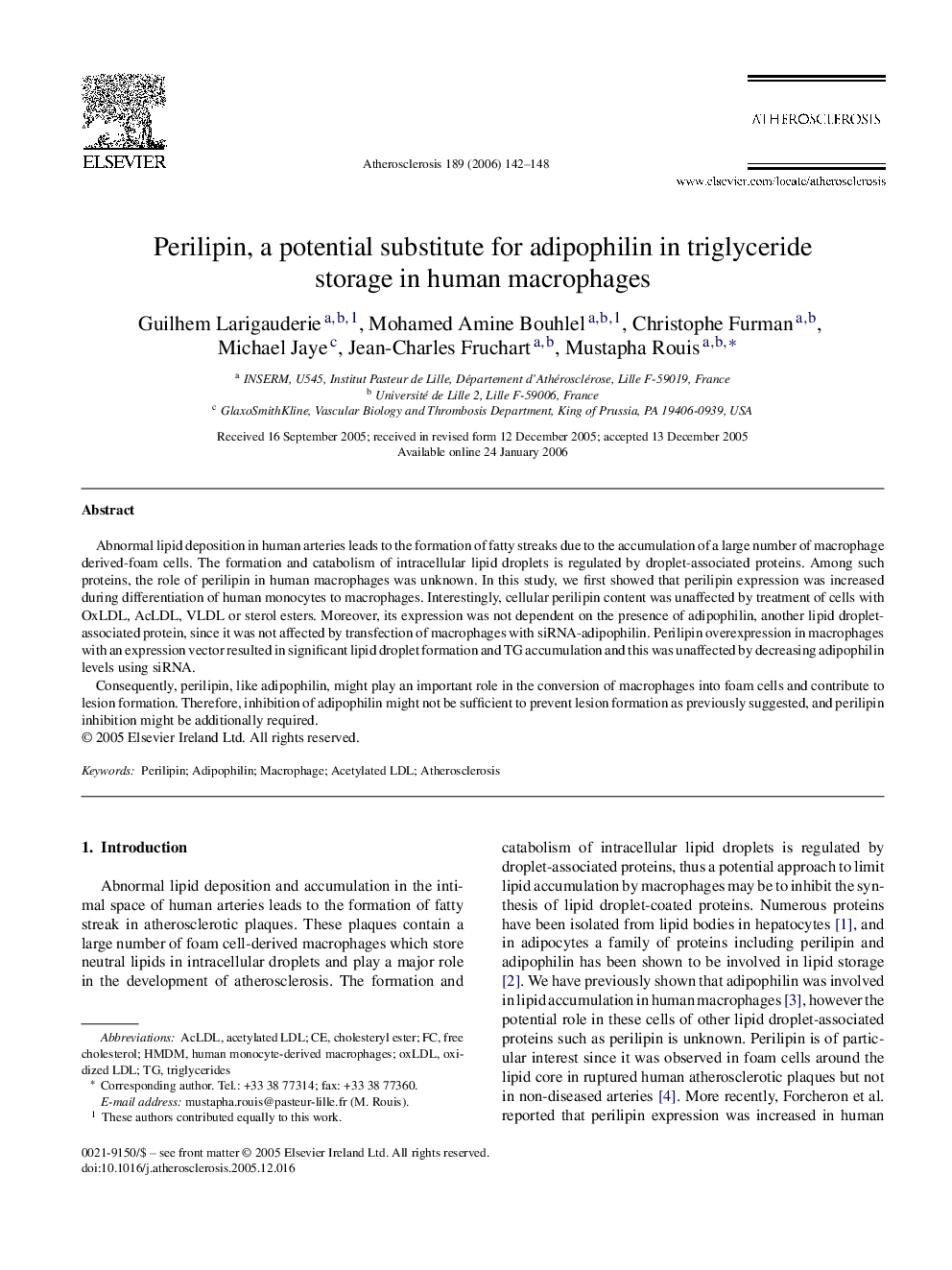| Article ID | Journal | Published Year | Pages | File Type |
|---|---|---|---|---|
| 2895155 | Atherosclerosis | 2006 | 7 Pages |
Abnormal lipid deposition in human arteries leads to the formation of fatty streaks due to the accumulation of a large number of macrophage derived-foam cells. The formation and catabolism of intracellular lipid droplets is regulated by droplet-associated proteins. Among such proteins, the role of perilipin in human macrophages was unknown. In this study, we first showed that perilipin expression was increased during differentiation of human monocytes to macrophages. Interestingly, cellular perilipin content was unaffected by treatment of cells with OxLDL, AcLDL, VLDL or sterol esters. Moreover, its expression was not dependent on the presence of adipophilin, another lipid droplet-associated protein, since it was not affected by transfection of macrophages with siRNA-adipophilin. Perilipin overexpression in macrophages with an expression vector resulted in significant lipid droplet formation and TG accumulation and this was unaffected by decreasing adipophilin levels using siRNA.Consequently, perilipin, like adipophilin, might play an important role in the conversion of macrophages into foam cells and contribute to lesion formation. Therefore, inhibition of adipophilin might not be sufficient to prevent lesion formation as previously suggested, and perilipin inhibition might be additionally required.
